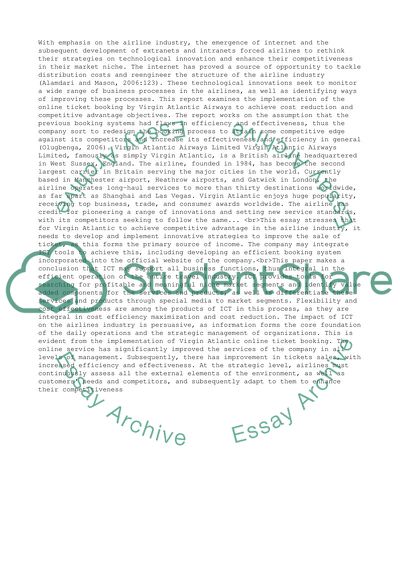Cite this document
(“Information and Communication Technologies in Virgin Atlantic Essay”, n.d.)
Retrieved from https://studentshare.org/management/1397174-information-and-communication-technologies-in-virgin-atlantic
Retrieved from https://studentshare.org/management/1397174-information-and-communication-technologies-in-virgin-atlantic
(Information and Communication Technologies in Virgin Atlantic Essay)
https://studentshare.org/management/1397174-information-and-communication-technologies-in-virgin-atlantic.
https://studentshare.org/management/1397174-information-and-communication-technologies-in-virgin-atlantic.
“Information and Communication Technologies in Virgin Atlantic Essay”, n.d. https://studentshare.org/management/1397174-information-and-communication-technologies-in-virgin-atlantic.


